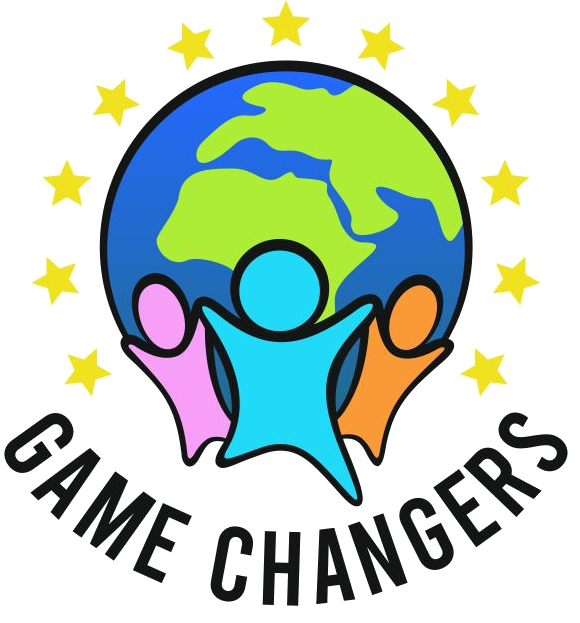During project implementation activities all partners gained international experience, shared professional knowledge, challenges, best practices, experience in their fields, actively participated in project phases implementation and have played a central role in the development of innovative outputs including the radical school guide. In addition, few participating schools even got extra mile by presenting project results in digital storytelling and creating e-portfolio.
At local levels project dissemination target audiences reached peer students; schools, teachers and youth organisations in the community; organisations in the local community working with youth and politics and with active citizenship; politicians and other players involved in policy-making; any research or innovation resource in the community in the field of politics, democracy and European values.
At regional/national levels project dissemination target audiences reached schools and teacher educations at regional and national levels; research and innovation bodies involved in the politics and youth agenda; NGO youth organizations involved in active citizenship for young people.
At Europe level project dissemination target audiences reached schools and teachers from across Europe interested in experimenting with open schooling methods to foster politics engagement and interest among young students; organizations and professionals in the “state of the art Youth and Politics research and policy Platform”.
The project activities were disseminated through the presentation of the project at national events, the dissemination of the message in schools and local communities, and the implementation of the project activities. The following are links to the main distribution.
As part of the National Education Agency’s Educational Innovation Exhibition School Exhibition 2020, the Game Changer project’s experience was presented at the Lithuanian Exhibition and Congress Center Litexpo. During the presentation, learning innovation was examined by integrating holistic learning methods and organizing distance learning: Inovatyvus mokymas tvariai bendruomenei: ,,Game Changer’iai” patirtis (LT) and Projekto ,,Game changer” patirtis (su vert. į gestų k.) (LT) . At the international scientific-practical conference “Civic Education for the Success of Lithuania and the World,” the project Game Changers was presented as a civic and social initiative. Political education issues were discussed at the conference, and practical tools for bolstering civic and social initiatives were shared: Tarptautinė konferencija „Pilietinis ugdymas Lietuvos ir pasaulio sėkmei“ (LT).
The Lithuanian College of Democratic Education has presented an innovative digital civic education program on platforms to share current educational and European sustainability issues. European e. Epale, an adult learning platform, shared game changers’ experience with implementing a digital storytelling methodology: Epale: Pristatyta inovatyvi skaitmeninė pilietinio ugdymo programa (LT). The results of the Game changers project, which focused on the views and attitudes of young people in different countries during the COVID-19 pandemic, were shared on Erasmus +, a platform of the European Union’s support program: Erasmus – plius: Mokyklos atranda inovatyvius būdus mokyti pilietiškumo (LT). The electronic platform of the conference on Europe’s Future shared the concept of the Game changers project as well as an invitation to join the Game changers network, which promotes active citizenship among young people. The platform allows European citizens to discuss the challenges and solutions that Europe faces: Futureu.eu: Jaunieji ,,Game Changer’iai” keičia pasaulį (LT).
During the project, young students became political game-changers and run their own communities initiatives or projects. All best practices, lessons learn and practical partners’ e-portfolio could be found in the interactive platform (www.gamechangersnetwork.eu). Game Changers Network welcomes and involves researchers or practitioners to promote and support youth and teachers in that field: http://gamechangernetwork.eu/.
The organizations shared the Game changers project’s activities with youth initiatives in their communities, as well as publicized the project information with their resources within the organizations. The Lithuanian College of Democracy Education has prepared articles that present the key information, dissemination, activities, and outcomes of the Game changers project. Organizations created separate e-portfolios and shared key project information on their websites to disseminate the Game changers project.
Throughout the project, Pasvalys Levens Basic School (Lithuania) published information in e-portfolio format, and Osnovna sola Staneta Zagarja Lipnica (Slovenia) provided basic project information on the school’s website and a separate blog. Szczecinska Szkola Wyzsza Collegium Balticum (Poland) has made basic information available on its website. The Katerini PLATON M.E.P.E. Platon School (Greece) has posted basic information on its community website: Game Changers meeting; meeting with Maria Spyraki. The Institut de Vilafant (Spain) information in Spanish was published on several platforms, including a separate blog on the website and a special article. Working with Europe / Treballant amb Europa Associació (Spain) provided basic information on the website of its organization. ELAZIG DOGA ANADOLU LISESI (Elazig Egitimcilik Tic.ve San.) (Turkey) has a website and an Instagram account. Participants in the Game changers project also had a general Instagram account for the project: Game Changers Instagram. In order to disseminate the Game changers project’s experience, newsletters containing project information were also created.
Furthermore, during the project newsletters were created and sent to target audiences. You can check out newsletters and all project pathway: Game Changers: newsletters
